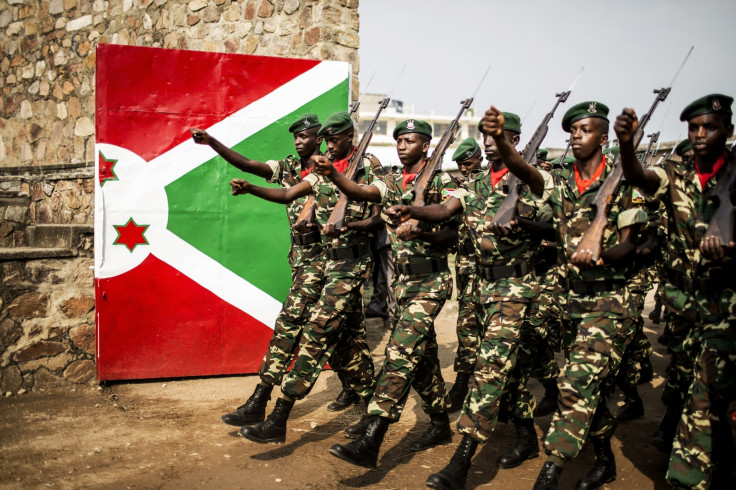Burundi: Opposition begs ICC to ensure perpetrators of crimes against humanity don't go unpunished
Opposition coalition says ICC exit should not give authorities 'a free band to continue committing crimes'.

One of Burundi's opposition parties has begged the International Criminal Court (ICC) prosecutor to ensure perpetrators of crimes against humanity do not go unpunished, after lawmakers in Burundi overwhelmingly voted in favour of a plan to withdraw from the world court.
Burundi becomes the first state to ever withdraw from the Hague-based court which investigates and prosecutes cases of genocide, war crimes and crimes against humanity.
Less than six months after the ICC said it was opening a preliminary examination into grave crimes committed in the African nation since the beginning of its deadly political crisis in April 2015, 94 out of 110 Burundi legislators approved the withdrawal plan on 12 October.
Burundi quits the ICC: What next?
Bujumbura's withdrawal will only take effect one year after President Pierre Nkurunziza writes an formal notice of withdrawal to the United Nations Secretary-General.
In the advent Burundi's request is approved, the ICC may still exercise its jurisdiction over crimes committed on the Burundian territory or by its nationals since 1 December 2004 and until 12 months after the nation's withdrawal.
In a statement published in the wake of the vote, the opposition Rassemblement des Democrates Burundais (RDB) said that Burundi's withdrawal from the founding Rome Statute "does not give the authorities a free band to continue committing international crimes by evading international justice.
"The RDB thus urges the ICC Prosecutor [Fatou B Bensouda] to speed up the ongoing preliminary examination and ensure that those responsible for international crimes committed in Burundi since 26 April 2015 do not enjoy a total impunity that want to secure by removing Burundi from the Rome Statute," the RDB opposition coalition said.
The group, which views Burundi's de facto government as being illegal, claimed the plan to withdraw from the world court has no legal basis and that the Parliamentary vote was "against the will of the majority of Burundians".
The United Nations in September expressed grave concerns about the human rights situation in Burundi as it published a report and listed suspects behind alleged violations amounting to crimes against humanity.
In May 2015, the RDB coalition referred the matter to the ICC.
The UN Independent Investigation in Burundi (UNIIB), which was established by the UN Human Rights Council in 17 December 2015, was mandated to undertake an investigation into violations and abuses of human rights in Burundi which has been rocked by a bloody crisis for 18 months.
In its report published on 20 September, the UN probe team described "abundant evidence of gross human rights violations as well as human rights abuses by the government and people whose actions can be attributed to the government" which may amount to crimes against humanity. It warned about the looming risk of genocide.
© Copyright IBTimes 2024. All rights reserved.






